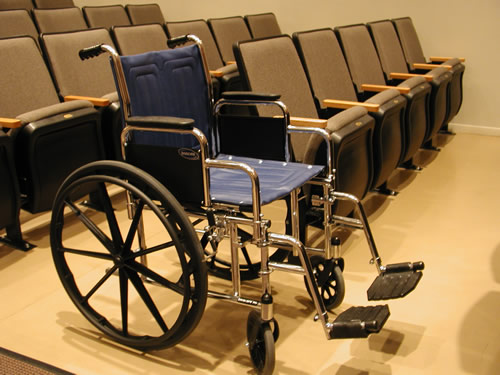MAiD / Euthanasia
Another disabled Canadian has spoken up about being pressured to choose euthanasia
On June 19, I interviewed Roger Foley – a Canadian with disabilities – on my LSN podcast on his ugly experience with Canada’s euthanasia regime. Time and again, he told me, he has been proactively offered euthanasia, even after he confessed to feeling suicidal ideation. At his most vulnerable, he was not offered the help he has been asking for – and is fighting for in court – but rather, a lethal injection.
He is not the only one.
On July 4, Montreal CTV reported that Tracy Polewczuk, a woman who suffers from spina bifida, was also offered “MAiD,” or “medical aid in dying,” twice. Her story is nearly identical to Foley’s in all of the details. In 2022, Polewczuk broke her leg in an accident. Spina bifida is a birth defect that causes weak bones, and her broken leg never fully healed, leading to constant pain and daily home care visits from the Pointe-Claire CLSC. Like Foley, she says the care she receives is often perfunctory and her clearly-articulated needs are frequently not addressed.
“They don’t bother asking, like, they know your name, but they don’t address you,” she told CTV. “It’s just so impersonal, and they don’t care. You get up when they tell you to. You go to bed when they tell you. You do what they tell you to. That’s it. You have zero control over your life. And I’ve gotten hurt several times because people won’t listen. Pain sucks. We all agree. It’s terrible. I’m in pain 24/7. It never stops. I can survive that. I cannot survive being treated like a sack of meat.”
Her husband James told CTV that he has frequently been afraid that her circumstances could lead to suicidal ideation. “I had to hide a certain medication that we have enough of that, if she took them, it would end her life. And I hid them,” he said. It was then – when Polewczuk was most vulnerable – that medical professionals informed her that she was “eligible for medical assistance in dying.” CTV reports that it was brought up once by a nurse at the rehabilitation centre at Ste-Anne’s Hospital and a second time by a social worker at the Verdun Hospital.
“It feels like we are being pushed towards the MAiD program instead of being given the help to live,” Polewczuk said. “I want to survive. I want to thrive. I want my life back. I want the opposite of what they’re trying to have us do.” That is, almost word for word, what Roger Foley told me. He doesn’t want to die, but he feels as if those around him see his life as not worth living and are nudging him, gently but firmly, toward that final “choice” that does not feel like a choice to those who are vulnerable, suffering, and utterly reliant on those around them.
Predictably, the West Island Regional Health Authority declined comment on Polewczuk’s case when asked, stating simply that: “The rules surrounding medical aid in dying are very strict, and we respect them to the letter. The initiative must always come from the patient, not the nursing staff.” But as Dr. Paul Saba, a family doctor, told CTV, suggestions from medical staff are often perceived as recommendations:
What are the circumstances in which those persons have asked it? Are these people at home not being served adequately, not getting a sufficient, not having anyone to help health her or him? My theory is that a lot of those people who have asked and gotten medical help to die, that they might have been in circumstances where they had no other choice.
Stories like these shed a chilling light on the skyrocketing numbers of Canadians who die by euthanasia each year. The Euthanasia Prevention Coalition reported this week that there were approximately 15,280 reported euthanasia deaths in 2023– up more than 15 percent from 2022.
The British Columbia Medical Assistance in Dying 2023 report indicates that there were 2,767 euthanasia deaths, up 10 percent. Among those reported, 2.4 percent were for autoimmune conditions, 24.8 percent were from chronic pain, 9.8 percent were for diabetes, and 60.5 percent were for “frailty.”
How many of those were cases like Roger Foley’s, or Tracy Polewczuk’s?








